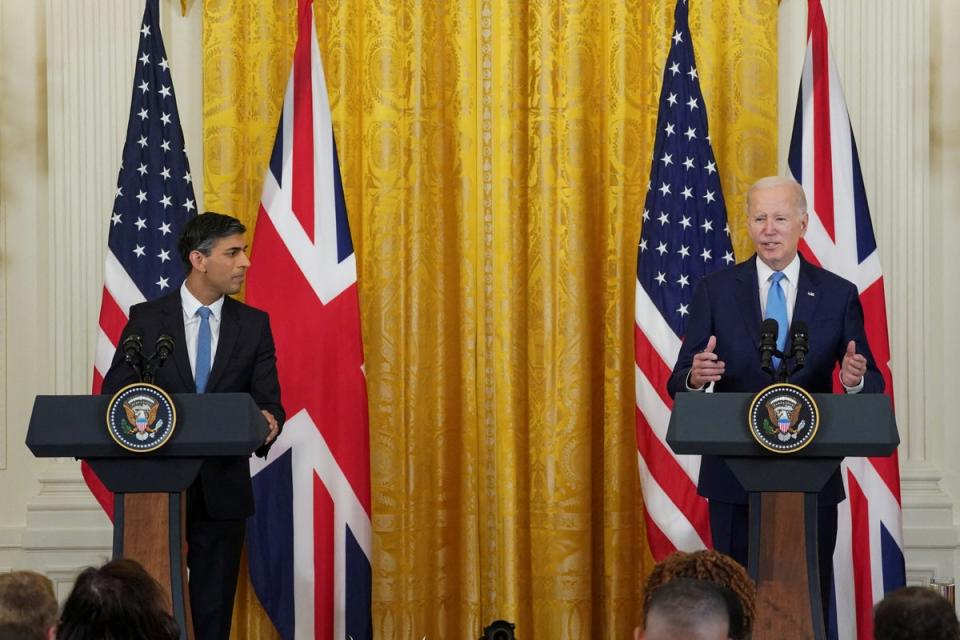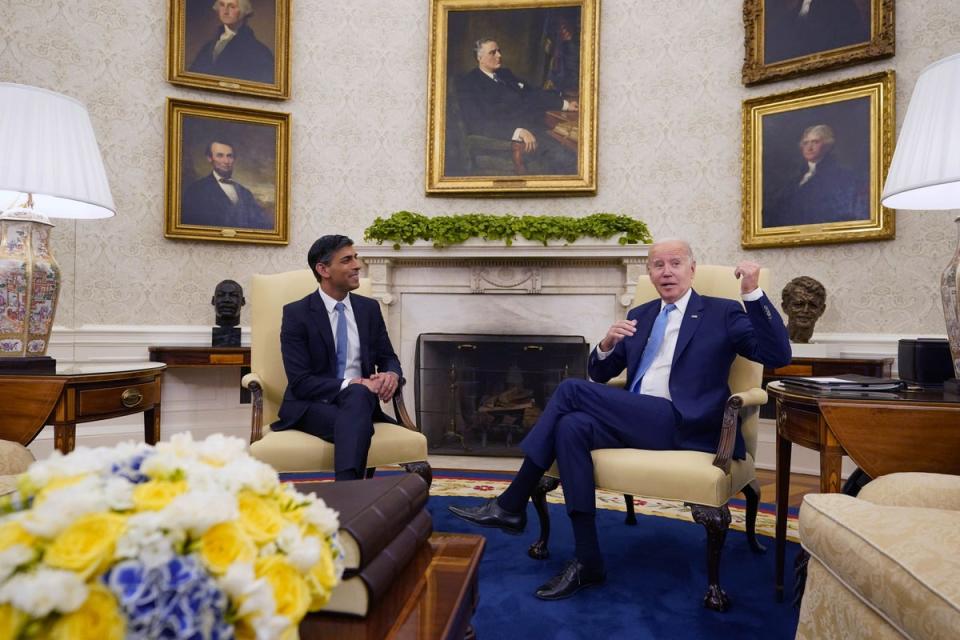What is Rishi Sunak and Joe Biden’s Atlantic declaration and how will it benefit Britain?

Rishi Sunak and Joe Biden have agreed on terms on the Atlantic Declaration, which has been hailed as a “framework for a twenty-first-century economic partnership” between the US and the UK.
The British prime minister has been touring America this week to hammer out an agreement and strengthen the special relationship between the two countries - which has been deemed as an “indispensable alliance”.
The deal announced at the White House has pledged commitments to easing trade barriers, closely aligning defence strategy, and implementing a data protection plan.
Speaking on Friday (June 9), Mr Sunak said: “The UK and US have always pushed the boundaries of what two countries can achieve together.
“Over generations, we have fought alongside one another, shared intelligence we don’t share with anyone else, and built the strongest investment relationship in world history.
“So it’s natural that, when faced with the greatest transformation in our economies since the industrial revolution, we would look to each other to build a stronger economic future together.
“The Atlantic Declaration sets a new standard for economic cooperation, propelling our economies into the future so we can protect our people, create jobs and grow our economies together.”

Here is a concise look at the Atlantic Declaration and what it contains.
Security partnership
With an eye on China, and with events still playing out in Ukraine, both countries are feeling the need to strengthen their bonds over security.
“We continue to optimise our longstanding defence cooperation and ensure that defence and technology trade and exports between our countries are as frictionless as possible,” a statement read.
The two nations committed to taking steps to streamline defence trade while the UK is also examining its export control regime to streamline the flow of defence trade among the AUKUS partners.

Strengthening trade and economic ties
The agreement was made after hopes of a full-blown free trade deal - as pledged in the Conservative manifesto - were abandoned, but it still contains several measures to mutually benefit both economies.
A key part of the deal was to mitigate some of the issues caused by Mr Biden’s Inflation Reduction Act.
This 2022 act includes proposals for a critical minerals agreement to remove barriers which affected trade in electric vehicle batteries.
An agreement would give buyers of vehicles made using critical minerals processed, recycled or mined by UK companies access to tax credits in line with the act.
The act provides a $3,750 incentive for each vehicle, on conditions including that the critical minerals used in its production – principally used in the battery – are sourced from the US or partner country.
An agreement could help companies all over the UK, including firms carrying out nickel production in Wales and lithium processing in Teesside.
In addition, Mr Biden has committed to asking Congress to approve the UK as a “domestic source” under US defence procurement laws, allowing for greater American investment in British firms.

Technology: from AI to 6G
Statements from both sides have stressed the need for joined-up thinking when it comes to technology alongside defence and economics.
The declaration states that: “Technology, economics, and national security are more deeply intertwined than ever before.
“We face new challenges to international stability – from authoritarian states such as Russia and the People’s Republic of China; disruptive technologies; non-state actors; and transnational challenges like climate change.”
This has been the incentive for three agreements: A data protection deal will ease burdens for small firms doing transatlantic trade, potentially saving £92 million; more collaboration will be seen on AI, 5G and 6G telecoms, quantum computing, semiconductors and engineering biology; and for partnership across all forms of space activity.
Before the meeting, it was announced that the UK would host a summit on AI safety.
Climate action
“The United States and the United Kingdom are both committed to meeting our goals under the Paris Agreement, building a clean energy economy, strengthening resilient supply chains, and investing in our industrial bases,” a statement began.
As part of this, both sides intend to begin negotiations on a targeted critical minerals agreement covering the five relevant critical minerals most important for electric vehicles – cobalt, graphite, lithium, manganese, and nickel.
In addition, both sides committed to entering a joint clean energy supply chain action plan. This could see the countries explore mutual options for offshore wind and electric vehicle batteries, and conduct rapid stress-test exercises across key clean energy supply chains.

 Yahoo Sport
Yahoo Sport 





































